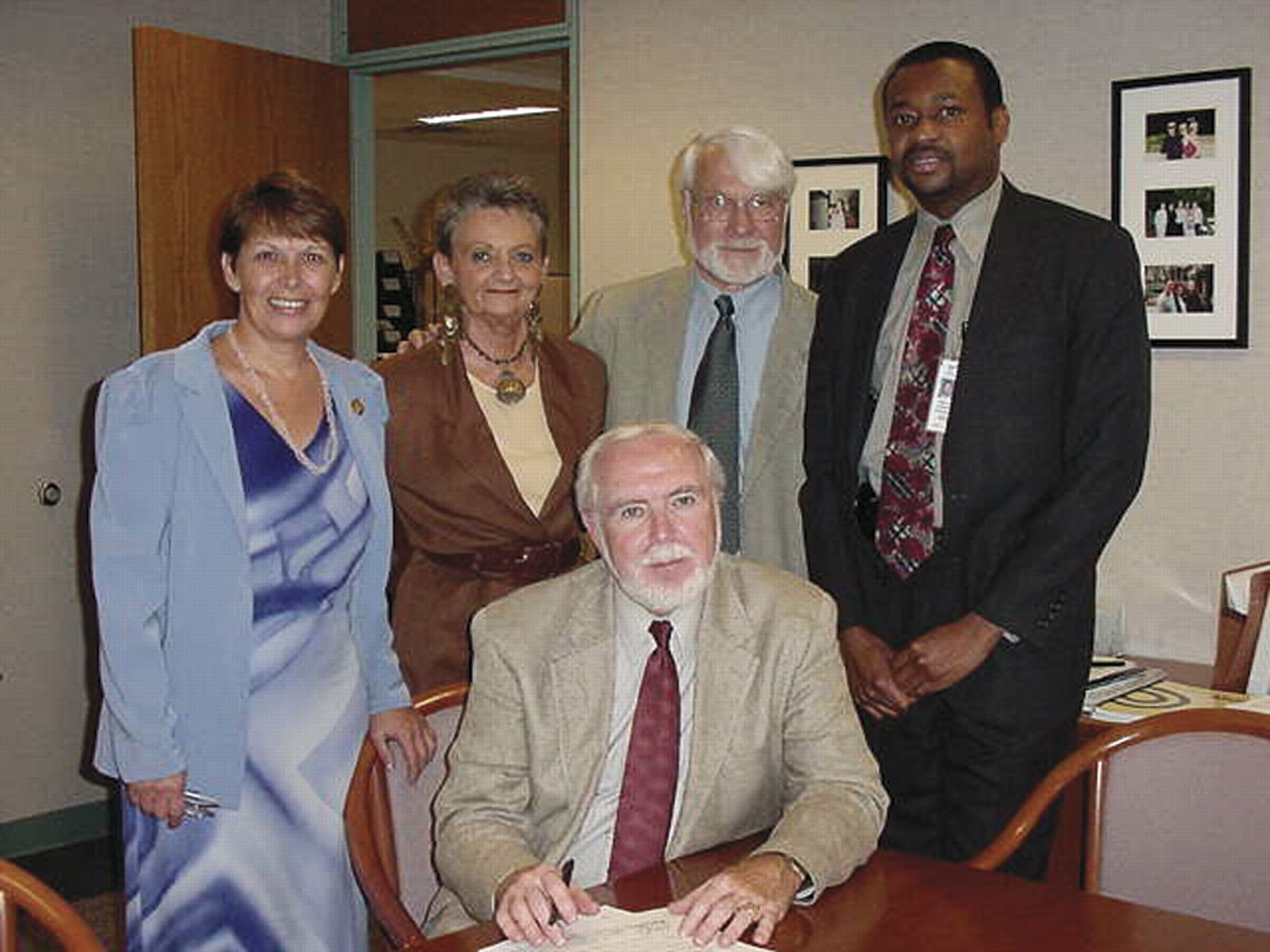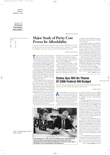The New Freedom Commission on Mental Health called for a “fundamental transformation of the nation's approach to mental health care” in its report to President George W. Bush in July 2003, recommending a focus on“ promoting recovery and building resilience.”
Members of Yale University's Department of Psychiatry who are based at the Connecticut Mental Health Center (CMHC) had already begun work with Connecticut's Department of Mental Health and Addiction Services (DMHAS) to help bring about those changes.
The 2000 appointment of Thomas Kirk, Ph.D., as DMHAS commissioner was a major impetus for what ultimately became a statewide effort to promote the“ recovery model” in public mental health services and the founding of the Recovery Education and Training Institute.
Kirk told Psychiatric News that the current focus on promoting recovery represents a “real culture change.” One element of this change is acceptance of the idea that recovery is an “individual journey” that will not produce the same outcome for everyone with a serious mental illness.
Kirk calls DMHAS a “health care service agency,” a term that emphasizes the idea that mental illness is like other serious illnesses in that the individual should be able to expect help in managing an illness and achieving the “highest quality of life for which he or she is capable.” The individual, however, should also accept responsibility for bringing about change.
Larry Davidson, Ph.D., DMHAS's policy director, helped Kirk implement the recovery concepts. Davidson, an associate professor of psychiatry at Yale based at CMHC, has researched and written about the recovery idea for nearly a decade.
Davidson acknowledged confusion in the mental health services field about a definition of recovery and takes seriously the consequences of that confusion.
In “Recovery in Serious Mental Illness: Paradigm Shift or Shibboleth?,” a paper published on the DMHAS Web site, Davidson wrote that “clarity and consensus must be achieved in relation to this important concept” for progress to be made in achieving implementation goals.
Recovery, according to Davidson, has been used to denote amelioration of symptoms and a reduction in other deficits associated with serious mental illness. That approach underlaid research, begun in 1967, of the World Health Organization's International Pilot Study of Schizophrenia, which found“ full to partial recovery” in 25 percent to 65 percent of each sample.
Views of Recovery Differ
But, Davidson wrote, those who have experienced serious mental illness and call themselves “consumers” or “survivors” often view recovery in a different way. Rather than remission of symptoms, people focus on overcoming the “[pernicious] effects of being a mental patient—including rejection from society, poverty, substandard housing, social isolation, unemployment, loss of valued social roles and identity, and loss of sense of self and purpose in life—in order to retain or resume some degree of control over their own lives.”
In an interview with Psychiatric News, Davidson noted parallels between the disability-rights movement and the consumer movement. Society provides various accommodations for individuals with disabilities, such as people who are deaf, that enable them to participate meaningfully in community life.
Accommodations such as supported housing and clubhouses provide similar kinds of opportunities for people with mental illness. An adequate response to serious mental illness requires treatment for the individual and appropriate changes to the environment in which he or she functions, Davidson believes.
Kirk used funds that became available because of the closure of state psychiatric hospitals to involve consumer advocates in an effort to articulate“ core values” associated with recovery.
Recovery Is `Overarching Goal'
In 2002 Kirk issued a policy statement, “Promoting a Recovery-Oriented Service System,” which designated recovery as the“ overarching goal” of the agency and defined recovery as “a process of restoring or developing a positive and meaningful sense of identity apart from one's condition and then rebuilding one's life despite or within the limitations imposed by that condition.”
The statement offers several examples of recovery, including“ managing one's illness such that the person can live independently and have meaningful employment and healthy social relationships.”
The DMHAS worked with Davidson and other CMHC-Yale psychiatry faculty members to establish the Recovery Education and Training Institute.
Luis Bedregal, Ph.D., Maria O'Connell, Ph.D., and Davidson developed the Recovery Knowledge Inventory (REI) to help assess the knowledge and attitudes of staff providing public mental health services about recovery to determine training needs. The REI measures knowledge and attitudes in four broad areas: roles and responsibilities of mental health professionals and consumers in recovery, nonlinearity of the recovery process, roles of self-definition and peers in recovery, and expectations of recovery.
Nearly 5,000 people have received training, which is free and voluntary. Results so far suggest that staff have the most difficulty in establishing expectations for their patients and understanding that recovery is a nonlinear process that does not always involve absence of symptoms.
Davidson recognizes the importance of finding ways of measuring the ultimate impact of the training on recipients of mental health services, as well as on participating staff.
Agencies providing public mental health services can apply to the DMHAS to become a Center of Excellence or a Practice Improvement Initiative site, where recovery-oriented practices will be developed and refined.
The National Institutes of Health recently awarded the DMHAS a five-year grant to study culturally responsive, person-centered care in large, urban mental health systems. The project targets the needs of persons of color who are living with psychosis and will involve peer-support services and self-directed wellness strategies that are associated with the recovery movement.
“Recovery in Serious Mental Illness: Paradigm Shift or Shibboleth?” is posted at<www.dmhas.state.ct.us/recovery/paradigmshift.pdf>.▪

